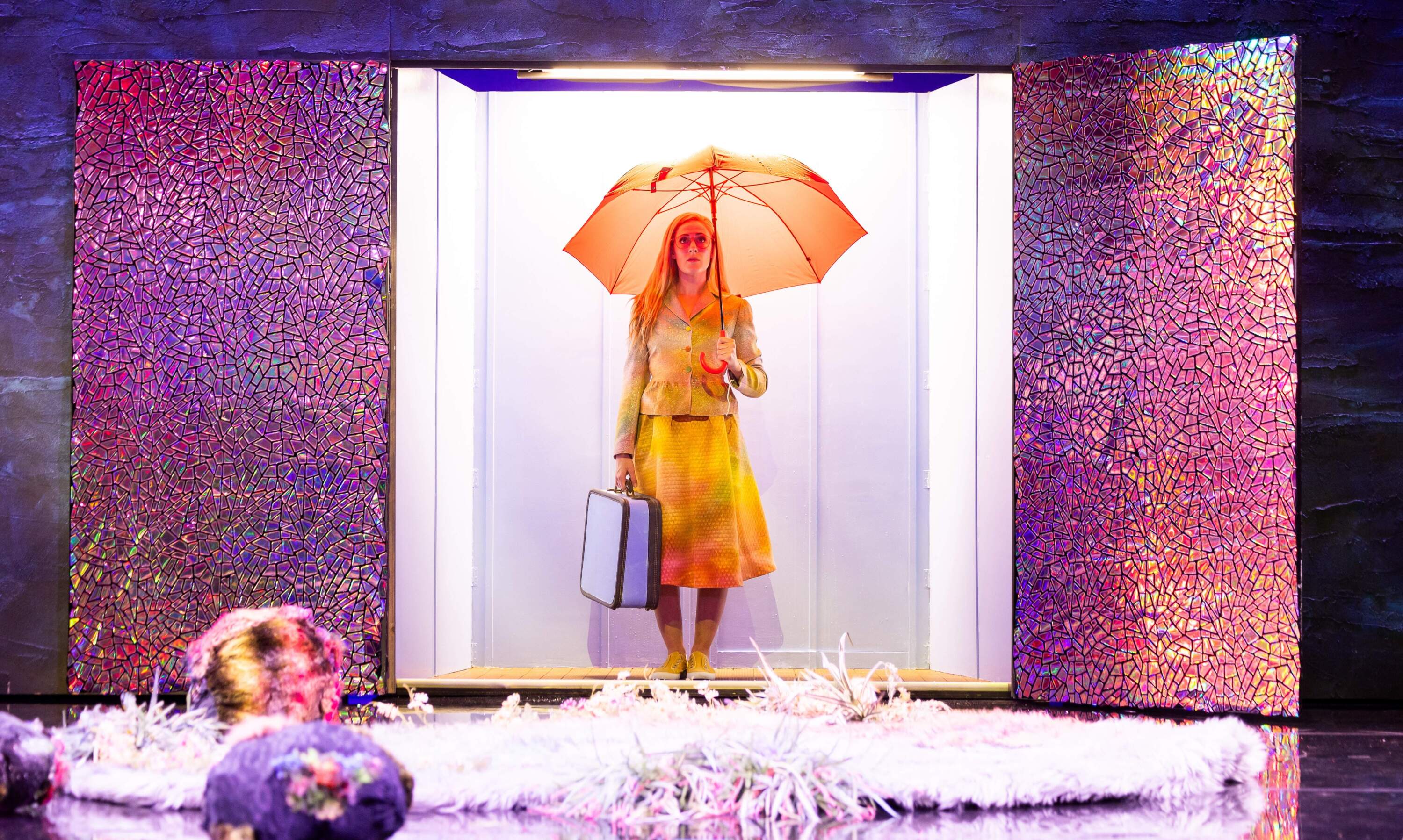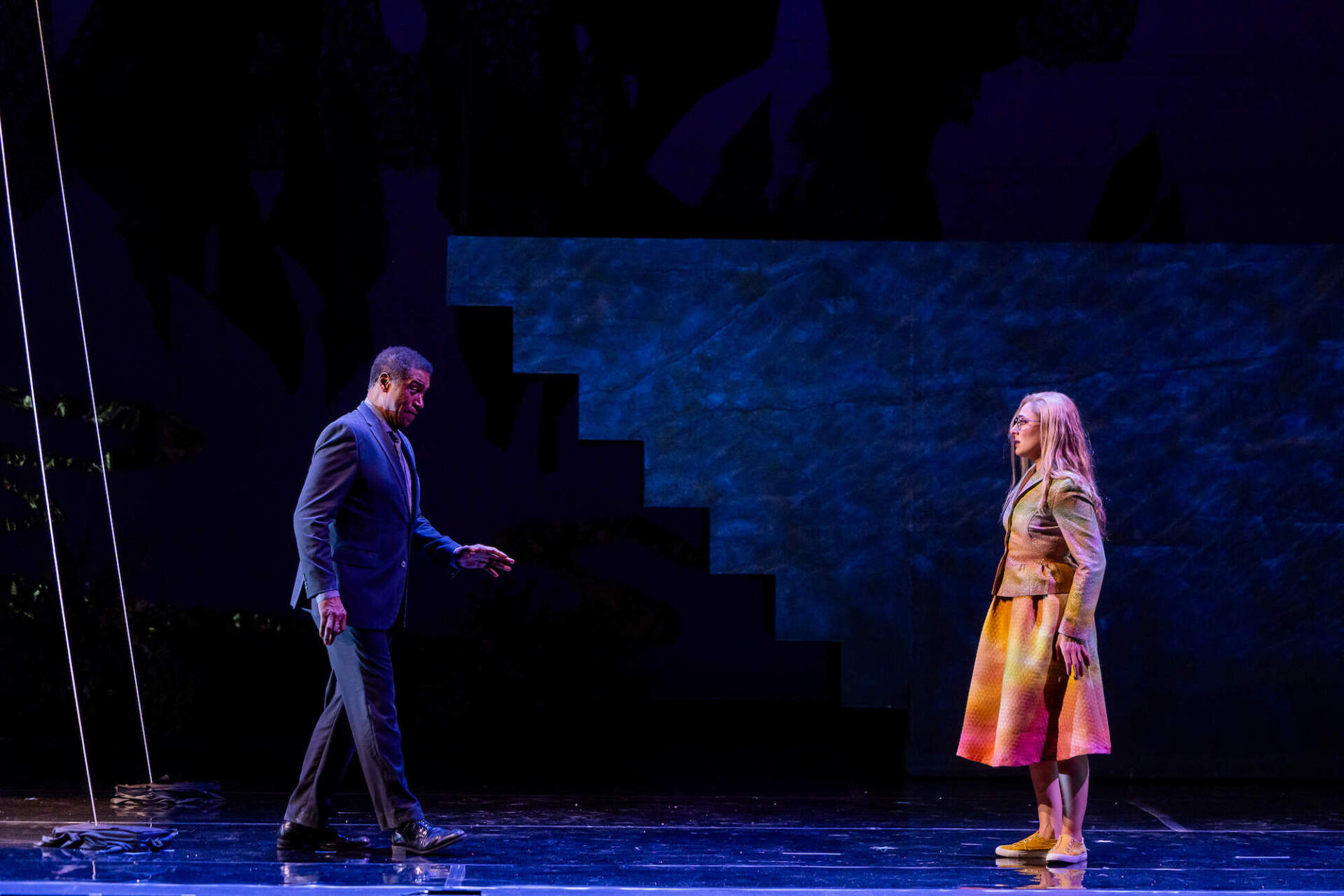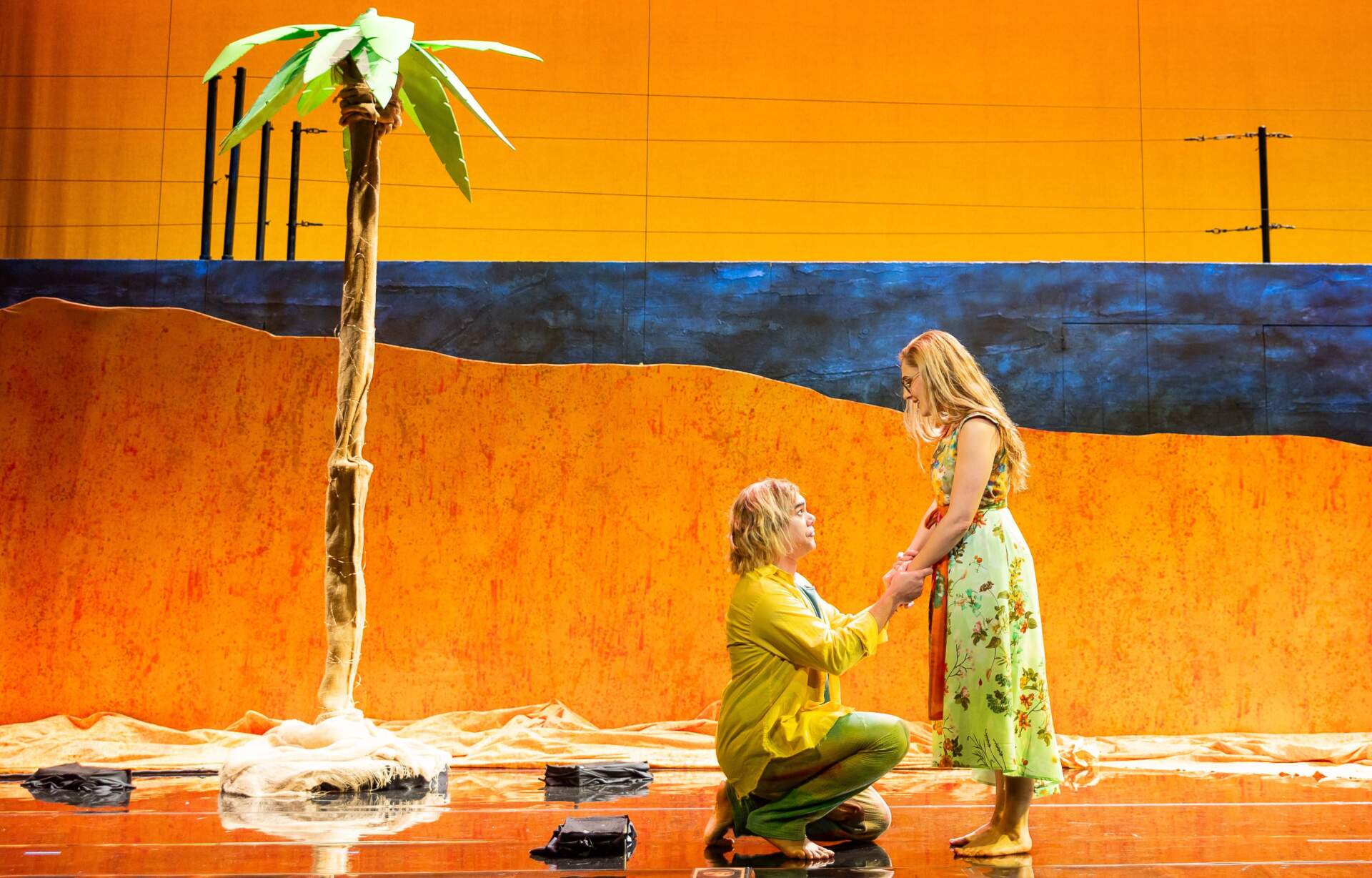Advertisement
BLO's 'Eurydice' takes a trip to the underworld

Memory is a delicate thing. Some of our recollections are so precious that we wish that we could hold on to them forever, while, from the perspective of playwright Sarah Ruhl, eternity would be difficult if we could not forget. In “Eurydice,” a new arrangement of an opera commissioned by Boston Lyric Opera and Opera Grand Rapids, the Greek myth’s characters confront how to face that vast expanse. Over the course of the production, the show’s protagonist explores an alternate dimension, undergoing a transformation as she learns what it is she must leave behind.
“Eurydice,” with music by composer Matthew Aucoin and a libretto by Ruhl, originally premiered at the Los Angeles Opera in 2020 and had its Metropolitan Opera premiere in 2021. For the debut of this new performance in Boston, pared down to a 17-person orchestra, Aucoin has recreated a score that feels lush and musically rich, though more intimate. It runs at The Huntington Theatre, opens on March 1 and regales audiences with the story of two ill-fated lovers, Eurydice and Orpheus.
The tale is unconventionally told from the point of view of Eurydice, who in most versions of the tragedy is something of a cipher or enigma. When the young woman dies, she journeys to the underworld, where, in Ruhl’s narrative, she is reunited with her father. Orpheus follows her in the hope that his music will move Hades to release his wife, that she might return to the world of the living. In this realm also lies the River of Forgetfulness, which erases the memories of anyone who dips into its waters.

“The collaboration with Matthew was really seamless and wonderful. It felt like I was distilling the play, and he was tossing it into musical form almost effortlessly,” said Ruhl. “It takes about five times as long to sing a phrase as to speak a phrase. Mathematically, I had to reduce the play, five to one… I wanted the emotional landscape to remain intact.”
All over the score, there are colorful references to water, Aucoin said, describing them as “liquid, melting gestures.” Near the end of the opera, the composer wrote “fast, slurred sixteenth notes in different patterns in the strings and low winds, like alto flute and bass clarinet” to create “a quietly chaotic, murmuring, babbling quality, like a brook.” One of the work’s most famous arias is “This Is What It Is To Love An Artist,” sung by the soprano Eurydice, played by Sydney Mancasola. She has discovered language again, triggered by hearing the name of Orpheus. The song is Eurydice’s reflection on being in love when she was alive, though it also relates the paradoxes inherent in that relationship.
“It’s an unusually quiet texture, with harp and very light strings in the background. This melody reaches upwards again and again; she’s describing imagining being lit by the cold light of the moon and feeling like the person you love is distant and always going away from you,” said Aucoin. The lyrics of the aria elaborate, “Inside his head, there is always something more beautiful,” illustrating Orpheus’ dreams that Eurydice must contend with, while Mancasola explained that the pair can never really speak the same language.

The story of the opera is one of self-discovery for the title character, Mancasola added. Eurydice begins as young and curious, though perhaps a bit self-centered and not quite mature enough to understand every situation she finds herself in. Throughout the show, she experiences growth, and something of a rite of passage, as she undergoes her descent into the underworld. She is swept up in the moments with Orpheus, but she is also driven by logic, Mancasola added, while ultimately proving her bravery and strong-willed nature. Ultimately, the production is thematically dark, yet Mancasola explained that there is something beautiful and uplifting about it.
“It’s a tragedy, but somehow it leaves people feeling optimistic, hopeful or wistful about humans,” she said. “That’s the power of this myth. What brings people back to this story? … There’s a quality that’s different, that leaves people with good questions. The decisions that Eurydice makes at the end of the piece leaves the audience with really good questions.”
Boston Lyric Opera's production of "Eurydice" runs at the Huntington Theatre through March 10.
